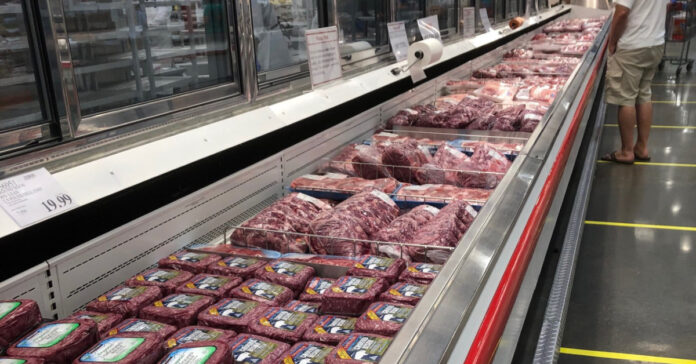Although they don’t quite say it in these words, the Wall Street Journal is reporting that the pandemic has turned more people into preppers. The story reports families are buying more food, more food in bulk packaging, and sales increases at stores like Sam’s Club, Costco and BJ’s Wholesale. Manufacturers are producing more multi packs and larger packages in response to increased demand and many are adding capacity to keep up.
The Journal uses the word “hoarding” in their headline, but it is clear reading the article that these people are stocking up in response to food shortages, and are not hoarders. (Shame on you, WSJ!)
Some of the bulk buying is in response to changing habits as people who started to cook more at home during the pandemic continue to do so. Others are taking steps to avoid getting caught without a particular ingredient or item.
After experiencing shortages of food and paper products, many Americans are taking reasonable precautions against running short again. They have changed their personal inventory levels, repurposed closets as second pantries, and bought millions of freezer chests since 2020.
Of course, not everyone can afford to build up their pantries or buy a new freezer chest. A recent survey showed that 70 percent of Americans are reportedly living paycheck-to-paycheck. My guess is that it is those with a disposable income that are stocking up.
Reasonable Precautions
Does this trend towards keeping more food on hand make these people preppers? Not really, but it is a good first step. Food storage is the foundation of a prepping program.
You could consider this a return to the behavior of a couple of generations back when the larder was stocked and people did not rely on frequent grocery deliveries. The new habit also makes America more resilient and provides a “food cushion” should the trucks stop rolling or the shelves go empty again.
The real question is how many people are taking this preparation to the next level? Will the combination of a pandemic, persistent food shortages, supply chain disruptions, fuel shortages, inflation, and an incompetent president be enough to convince people to become preppers? I think it already has. I think we are seeing more families realize they have to take responsibility for their own well-being. The pandemic kicked off the trend, but the inflation we saw in 2021 is adding another dimension. People are more likely to stock up when something is on sale and buy an extra when they find something they want.
The Evolution of Prepping
When I started prepping in the 1990s, the term prepper didn’t exist. We were survivalists, which to most non-preppers meant we were a bit like Rambo and his big survival knife living in a wooden shack in a wilderness area like Ted Bundy. Survivalists were considered gun-toting extremists who thought the Mad Max movies were training films.
Over time, the group that had been captured under the survivalist label split into a few different wings: People who prep at home, homesteaders, people who are into bush crafting and wilderness survival, and the tactical preppers emphasize self-defense and the idea that firepower will be critical to survival. There is plenty of overlap; for example, I fit in the first and last groups, and I live on a small homestead, but my bush craft skills are not very strong. Wilderness survival has never been my thing.
Prepping evolved as a term that was friendlier and safer than survivalist, but early prepper TV shows like Doomsday Preppers still seemed to paint preppers as out in left field. As YouTube became more prevalent, it became clear many preppers were people who do home canning, shop carefully, and aim to increase their self-reliance; prepping became more accepted and almost commonplace.
Prepping Proves its Worth
That level of acceptance in our modern society is I why I think some of the people who have recently stocked up will wake up and become preppers. It’s an easy transition to go from stocking food and toilet paper to prepping. Being a prepper in 2022 may cause a few people to shake their heads, but it is unlikely to get you ostracized, like being a survivalist would 30 years ago.
Also, once you start preparing, it doesn’t take much for prepping to prove its worth, and that just makes you want to prep more. The first time a winter storm heads your way and you don’t panic about buying bread and milk, you feel good. When your neighbor complains that the cost of hamburger, you grin to yourself, knowing you have several months’ worth of hamburger in your freezer. Then a storm knocks out power and instead of worrying that the food in your freezer will go bad, you hook up your generator while that same neighbor asks if he can run a long extension cord over to your house.
So if any of you folks stocking up at the club store are thinking about preppers, welcome! We are here to help.








How could anyone justify NOT preparing for their families at this point.
Going to the store will be dangerous soon. Pete’s right, the “follow home” Robberies will be aimed at the folks who are buying food for their families. Why would you sign up for that? ! ? !
Comments are closed.